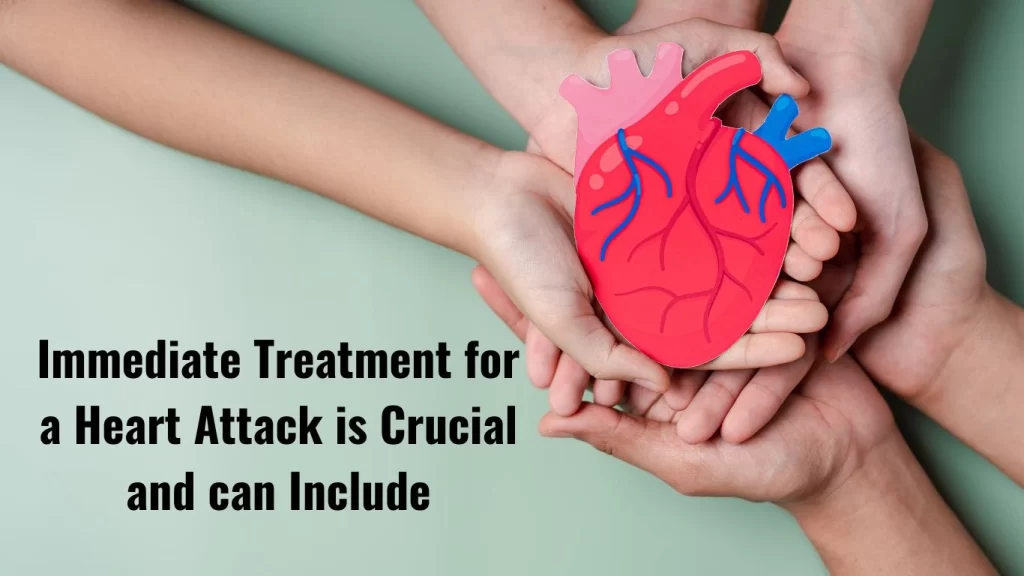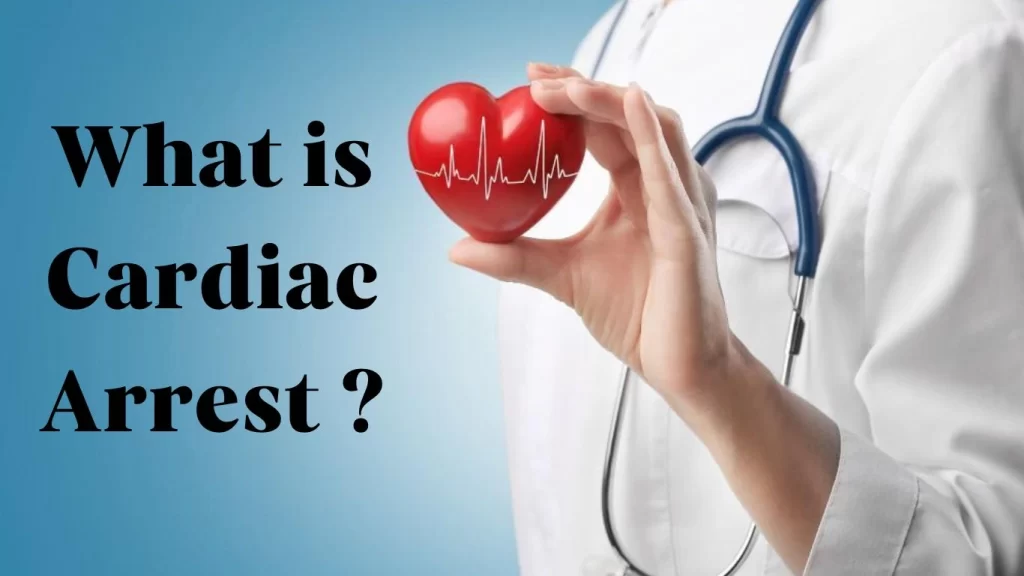Introduction
Regarding issues of the heart, clinical phrasing can sometimes be confounding, and two terms frequently utilized reciprocally are “heart failure” and “coronary episode.” Be that as it may, they allude to unmistakable ailments, each with its causes, side effects, and results. Understanding the distinction between these terms can involve life and demise, as they require various ways to deal with treatment and avoidance. This blog is to explain the difference between cardiac arrest and heart attack and to provide accurate information about their treatments.
Table of contents
What is a Heart Attack?
A respiratory failure, restoratively known as a myocardial dead tissue, happens when there is a blockage in the veins (coronary conduits) that supply the heart muscle with oxygen and supplements. This blockage can be brought about by the accumulation of greasy stores or plaque in the supply routes, bringing about reduced bloodstream to the heart.
Side effects of a Heart Attack:
- Chest agony or inconvenience: A coronary failure frequently presents as severe, crushing chest pain that might emanate to the arm, neck, jaw, back, or stomach.
- Breathlessness.
- Cold sweats.
- Nausea or regurgitation.
- Fatigue
- Dizziness or wooziness.
What Occurs During a Heart Attack ?
During respiratory failure, some portion of the heart muscle might be harmed because of the lack of bloodstream. The extent of harm relies upon the size of the blockage and how rapidly clinical intercession is looked for. Fast treatment, for example, angioplasty or the utilization of clump busting drugs, can assist with reestablishing the bloodstream to the impacted region and breaking point heart muscle harm.
Common Causes of Heart Attacks
- Atherosclerosis: The continuous development of plaque in the coronary courses, which can thin or impede the bloodstream to the heart.
- Coronary corridor fit: Abruptly restricting the coronary veins because fits decrease the bloodstream.
- Coronary conduit analyzation: An intriguing condition where the layers of the coronary corridor are isolated, upsetting the bloodstream.
- Embolism: A blood coagulation or other material (like fat or air) can go from somewhere else in the body and block a coronary vein.
- Blood vessel aggravation: Conditions like vasculitis can prompt irritation of the coronary conduits, possibly causing cardiovascular failure.
Symptoms of a Heart Attack can Vary, But Common Signs and Symptoms Include
- Chest agony or uneasiness: Frequently depicted as a sensation of strain, totality, crushing, or torment in the chest. This is ordinarily the most conspicuous side effect.
- Torment emanating to different regions: The aggravation might originate in the arms, neck, jaw, shoulder, or back.
- Windedness: You might encounter trouble breathing occasionally, regardless of chest torment.
- Queasiness and retching: Certain individuals feel disgusted or upset during respiratory failure.
- Cold sweats: Lavish perspiring, frequently joined by a sensation of looming destruction.
- Dizziness or swooning: You might feel mixed up or drop.
- Fatigue: Surprising sluggishness or shortcoming, which can be a side effect, especially in ladies.

Immediate Treatment for a Heart Attack is Crucial and can Include
- Calling 911: Look for crisis clinical assistance when side effects start.
- Taking headache medicine: Whenever suggested by a medical services supplier, take ibuprofen to assist with forestalling blood clump development.
- Nitroglycerin: Whenever recommended and accessible, accept dynamite as coordinated for chest relief from discomfort.
- Crisis clinical consideration: In the clinic, specialists might utilize prescription methods like angioplasty with stent position or coronary conduit to sidestep a medical procedure to reestablish bloodstream to the heart and limit harm.

What is Cardiac Arrest ?
Heart failure is an unexpected, startling loss of heart capability frequently brought about by an electrical breakdown in the heart that prompts an irregular heartbeat (arrhythmia). This malfunction disturbs the heart’s capacity to pump blood effectively, making the heart quit thumping through and through.
Causes of Cardiac Arrest
- Ventricular fibrillation: This is a typical reason for heart failure. It happens when the heart’s electrical signs become turbulent, prompting an ineffectual trembling of the heart muscle.
- Ventricular tachycardia: A quick, unusual heart mood can keep the heart from siphoning successfully, prompting heart failure.
- Bradycardia: A pulse that is too sluggish can likewise prompt heart failure, assuming it turns out to be excessively delayed to keep up with a legitimate bloodstream.
- Coronary failure: Albeit unique concerning heart failure, a coronary episode might prompt heart failure if severe cardiovascular loss harms the heart’s electrical framework.
- Electrical anomalies: Certain circumstances, for example, long QT condition, Brugada disorder, and Wolff-Parkinson-White condition, can build the gamble of unexpected heart failure.
Side effects of Cardiac Arrest
Heart failure typically happens abruptly, and the individual might implode with no advance notice. Normal side effects include:
- Loss of awareness: The impacted individual may abruptly become inert.
- No heartbeat or relaxation: There will be no perceivable heartbeat or breathing, and the individual might seem dormant.
- Heaving for breath: Agonal pants or unpredictable, toiled breathing might be available.
Prompt treatment for Cardiac Arrest is primary and incorporates the accompanying advances:
- Call 911: Look for guaranteed clinical assistance by calling crisis administrations to get proficient help on the way.
- Begin CPR (Cardiopulmonary Revival): Assuming you are prepared in CPR, start chest compressions and salvage breathing to assist with keeping up with blood course and oxygen levels until proficient clinical help shows up.
- Utilize a computerized outside defibrillator (AED): If an AED is accessible, adhere to its guidelines to convey an electric shock to the heart to reestablish a typical musicality.
Diffrence Between Cardiac Arrest and Heart Attack
- Cause: Respiratory failure is usually brought about by an obstructed coronary vein, while heart failure is essentially an electrical breakdown in the heart’s rhythm.
- Symptoms: Coronary failure side effects commonly include chest pain, breathlessness, and different indications of distress, while heart failure is described by sudden loss of consciousness and absence of a pulse.
- Response: Because of cardiovascular failure, there is generally a chance to look for clinical assistance. Conversely, heart failure requires immediate attention, including CPR and defibrillation, to reestablish the heart’s ordinary beat.
- Consequences: A coronary episode can cause heart muscle damage, while heart failure can be fatal in no time if not treated expeditiously.
FAQ’s For Difference Between Cardiac Arrest and Heart Attack
Cardiac arrest is quite different; it often happens without any warning. Someone experiencing it may suddenly collapse, lose consciousness, and there’s no pulse or response. It’s a critical situation
Yes, getting fast CPR and defibrillation significantly improves the chances of survival during cardiac arrest. It’s why learning CPR is so valuable.
Heart attacks often come with warning signs, but cardiac arrest usually occurs suddenly, without any advance notice. It’s essential to recognize the common symptoms of a heart attack, like chest pain, to act promptly.
Lifestyle changes can improve heart health, but they may not reverse all the damage caused by these events. Rehabilitation and ongoing medical care are often necessary for recovery.
You can find CPR and AED training through local organizations, schools, or healthcare providers. Many online resources and apps also offer training courses.
Related Link:-
Conclusion
Understanding the urgent contrasts between heart failure and coronary episodes is crucial for everybody. While the two circumstances are connected with heart wellbeing, their causes, side effects, and required reactions contrast essentially. Recognizing the signs and making a suitable move can be the contrast between life and passing.
If you or somebody you know encounters side effects of a coronary failure or witnesses somebody imploding unexpectedly, it’s crucial to call 911 right away and look for clinical consideration. Learning cardiopulmonary revival (CPR) can likewise be a daily existence saving expertise in case of heart failure. Continuously focus on heart wellbeing through a sound way of life, regular clinical check-ups, and overseeing endangered elements to forestall these possibly dangerous occasions.


